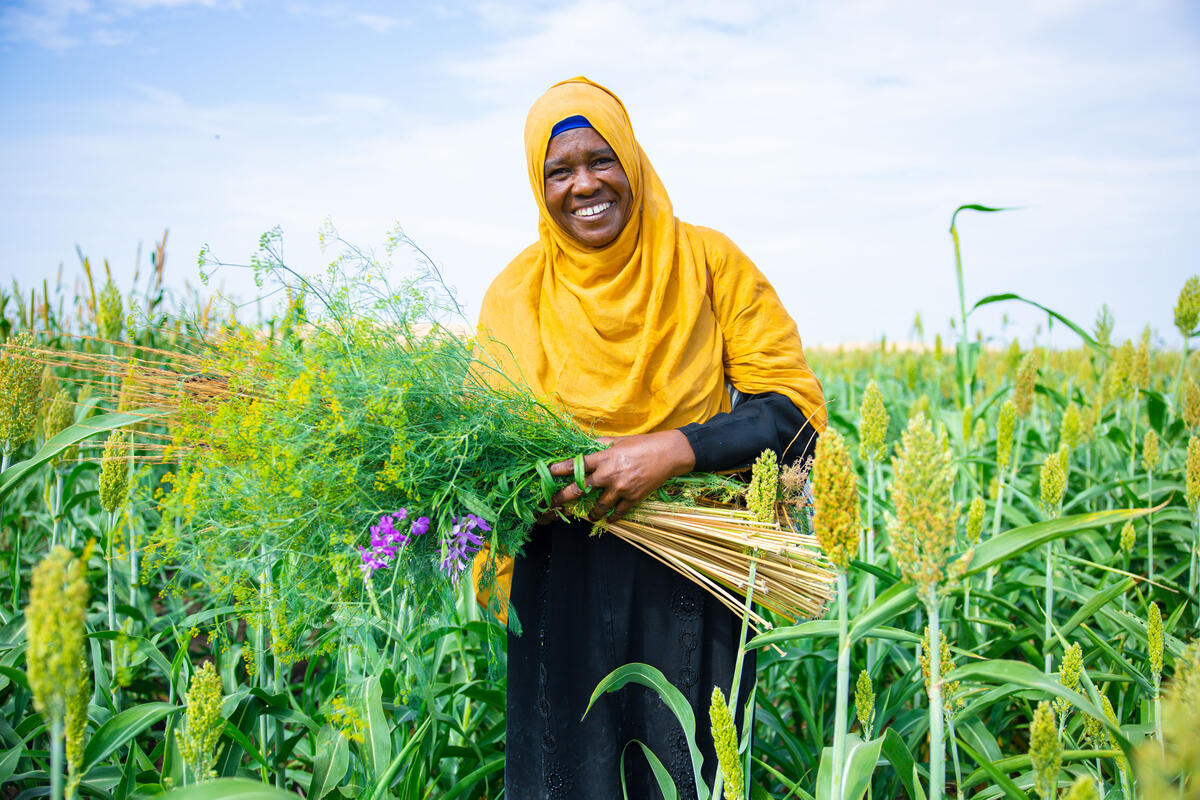-for-the-idph-website_110ce078c4af444dd9594a7ab76ad8387.jpg?sfvrsn=fd3a43d6_0)
The importance of plant health in One Health
Plant health is the foundation of food security and is interconnected with human, animal and environmental health. Healthy plants provide nutrient-rich diets for humans and animals and help promote a balanced ecosystem. Pest-infected plants can trigger a cascade of negative effects on food supplies and induce outbreaks of zoonotic diseases transmitted through harmful pathogens. Pesticides play a role in pest management but their overuse and poor management cause biodiversity loss, environmental pollution, ecosystem dysfunction, food safety concerns and pesticide resistance.
Plants are life – we depend on them for 80 percent of the food we eat and 98 percent of the oxygen we breathe. But we lose as much as 40 percent of crops to pests, setting back global efforts to ensure food security, harming precious biodiversity and impacting economies and livelihoods.
This year, the International Day of Plant Health calls on everyone to raise awareness and take action to keep plants, animals, humans and the environment healthy.
When we protect plants, we protect lives.International Day of Plant Health
07/04/2023
Why an International Day of Plant Health?
The United Nations designated 12 May the International Day of Plant Health (IDPH) to raise global awareness on how protecting plant health can help end hunger, reduce poverty, protect biodiversity and the environment, and boost economic development. The Day is a key legacy of the International Year of Plant Health 2020.

6 reasons why plants are integral to the One Health approach
Plants are not just a backdrop to human and animal life – they are central to the health of our entire planet. In the One Health approach, which emphasizes the interconnectedness of people, animals, plants and ecosystems, plant health is a vital but often underrecognized pillar. Here's why plant health is critical.
Publications
Live

IDPH Impact Reports
IDPH Impact Report 2023 and 2024 – street parades, plant health clinics, conferences, social media campaigns and more – take inspiration from the various events that created ripples around the world to mark the International Day of Plant Health.
Find more publications and resources here developed by the International Plant Protection Convention.

International Plant Protection Convention (IPPC) Annual Report 2024
The report outlines the IPPC Secretariat's key achievements in 2024, including in standards setting, implementation and phytosanitary capacity development, partnerships, and communication.

Activity book – Healthy plants, healthy planet
This activity book has been designed, written and illustrated to bring children and young people closer to the world of plant protection; the science that deals with plant health.
The book is available in German, Russian, Portuguese, Greek, Korean, Italian, French, Spanish, Chinese, Estonian, Czech, Arabic, Armenian, Azerbaijani, Dutch, Turkish

How to use antimicrobials effectively and responsibly in plant production, for the sake of human and plant health
This publication presents the four principles of effective and responsible use of antimicrobials in plant production for human and plant health.

Get involved now!
Check out the guide available in various languages to start organizing your event. Whether you’re a government institution, a private business, a civic organization, NGO, journalist or an individual, we all have a role to play in raising global awareness to protect plant health.


